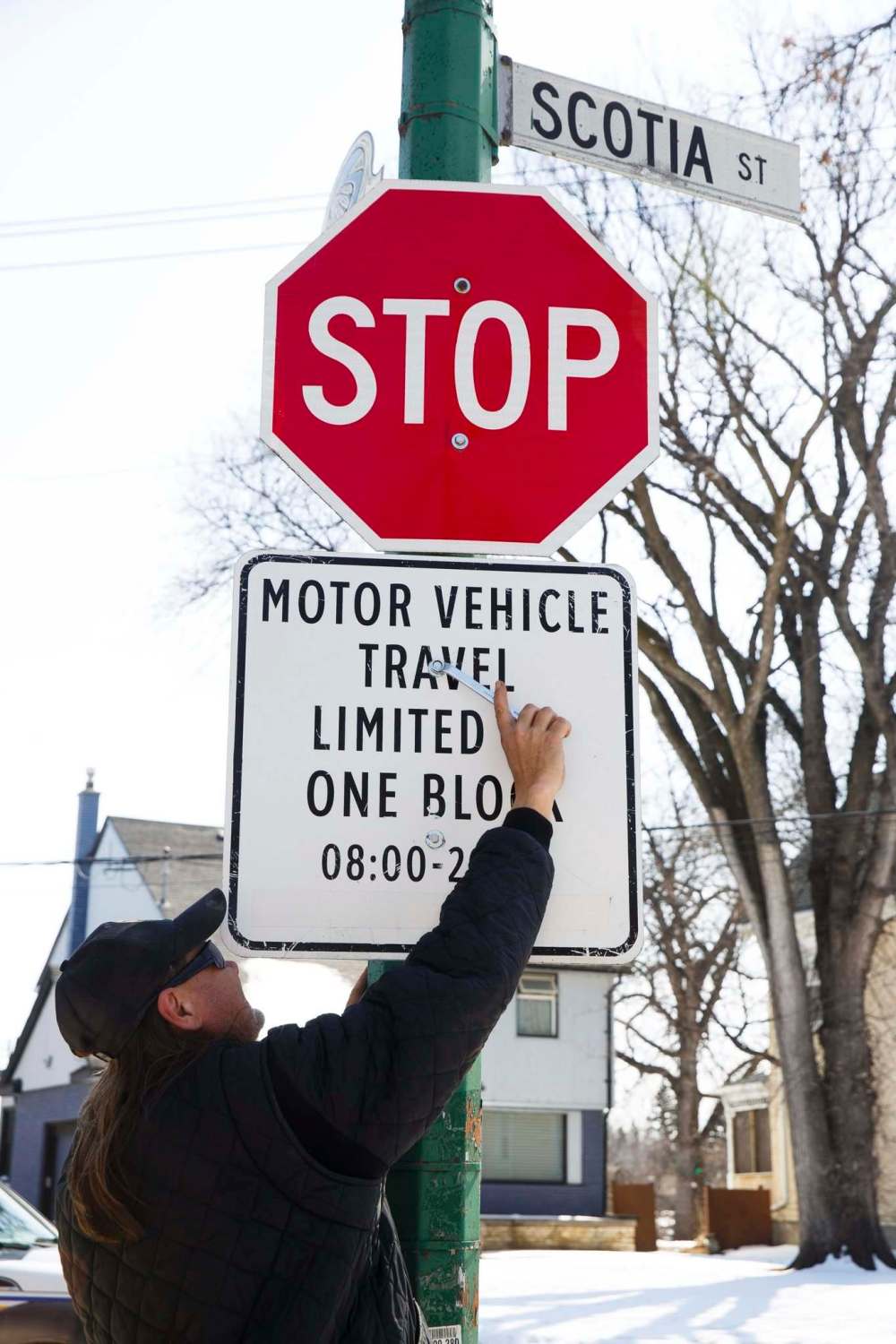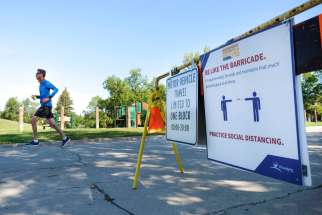Enforcement should walk on the sensible side
Read this article for free:
or
Already have an account? Log in here »
To continue reading, please subscribe:
Monthly Digital Subscription
$0 for the first 4 weeks*
- Enjoy unlimited reading on winnipegfreepress.com
- Read the E-Edition, our digital replica newspaper
- Access News Break, our award-winning app
- Play interactive puzzles
*No charge for 4 weeks then price increases to the regular rate of $19.00 plus GST every four weeks. Offer available to new and qualified returning subscribers only. Cancel any time.
Monthly Digital Subscription
$4.75/week*
- Enjoy unlimited reading on winnipegfreepress.com
- Read the E-Edition, our digital replica newspaper
- Access News Break, our award-winning app
- Play interactive puzzles
*Billed as $19 plus GST every four weeks. Cancel any time.
To continue reading, please subscribe:
Add Free Press access to your Brandon Sun subscription for only an additional
$1 for the first 4 weeks*
*Your next subscription payment will increase by $1.00 and you will be charged $16.99 plus GST for four weeks. After four weeks, your payment will increase to $23.99 plus GST every four weeks.
Read unlimited articles for free today:
or
Already have an account? Log in here »
Hey there, time traveller!
This article was published 04/05/2021 (1684 days ago), so information in it may no longer be current.
Even for citizens who would never consider themselves to be scofflaws, some laws seem to invite scoffing.
Beginning on Monday, motorized-vehicle traffic was restricted on sections of 17 Winnipeg streets under an initiative that used to be called “Open Streets,” when such sections were considered open to both pedestrians and cyclists.
But city council recently changed the name to “enhanced summer cycling routes,” reflecting the fact the roadways will continue to be open to cyclists but, according to the letter of a law, pedestrians will instead remain confined to sidewalks.

Pedestrians are sidelined by a previously disregarded clause in the Highway Traffic Act that prohibits walking on roadways where a “reasonably passable” sidewalk is present. Who knew? Clearly, not the city councillors who last year approved the Open Streets pilot project that welcomed pedestrians to pound the pavement normally dominated by motorized vehicles. For the record, a check of local obituaries would likely show the thousands of pedestrians who traversed the Open Streets last year all survived their strolls.
Sometime between then and now, however, a city administrator — in a display of admirable but misdirected diligence — perused the legal intricacies of the HTA and informed councillors the formerly open streets must be closed to pedestrians. City officials are lobbying the province to amend the relevant HTA section, but legal changes are notoriously slow, so pedestrians won’t get legal authority to leave the sidewalk this summer.
Until the law is changed, the hope is that authorities will use reasonable discretion and, frankly, pay no heed if a pedestrian happens to set foot on a designated roadway. Such common-sense enforcement of laws has plenty of precedents.
For example, City of Winnipeg Bylaw 89 says people can’t spend more than 90 minutes in a city bus shelter, and no one in such shelters can smoke or consume alcoholic beverages. This bylaw is flouted regularly as people without homes cram into bus shelters, sometimes all night — a dire situation overlooked by authorities who presumably excuse the shelter occupancy as a consequence of larger social problems.
It’s also against the law in Winnipeg to strike a sidewalk with a metal object, to go naked in your home if you leave the blinds up, or to hum while aboard a city bus. Sensible discernment dictates that a bus passenger’s illicit humming of Louis Armstrong’s What A Wonderful World should not be prosecuted; such prudent judgment should also apply to pedestrians ambling on streets formerly known as “open.”
It’s also against the law in Winnipeg to strike a sidewalk with a metal object, to go naked in your home if you leave the blinds up, or to hum while aboard a city bus.
In the disheartening event that an overzealous official tickets a pedestrian, there would seem to be a strong legal defence. The relevant HTA section prohibits walking on roadways where a “reasonably passable” sidewalk is present. A case could be made that during a pandemic, when people are warned to stay two metres apart, a sidewalk occupied by other pedestrians is not “reasonably passable,” necessitating a temporary detour onto the road.
Such a legal challenge should be unnecessary, however. Enforcement officers shouldn’t actively seek out rogue pedestrians and, should they see one, the best option might be to look the other way.
When Charles Dickens employed the expression “The law is an ass” in his 1838 novel Oliver Twist, he wasn’t referring to the seat of human anatomy, but to the colloquial name for donkeys — which have traditionally been characterized as stubborn and stupid, so the phrase refers to a senselessly rigid application of a law.
To police the Open Streets concept with a section of the HTA that was never intended for such a situation would warrant such a blunt Dickensian description. Such enforcement would be asinine, indeed.












